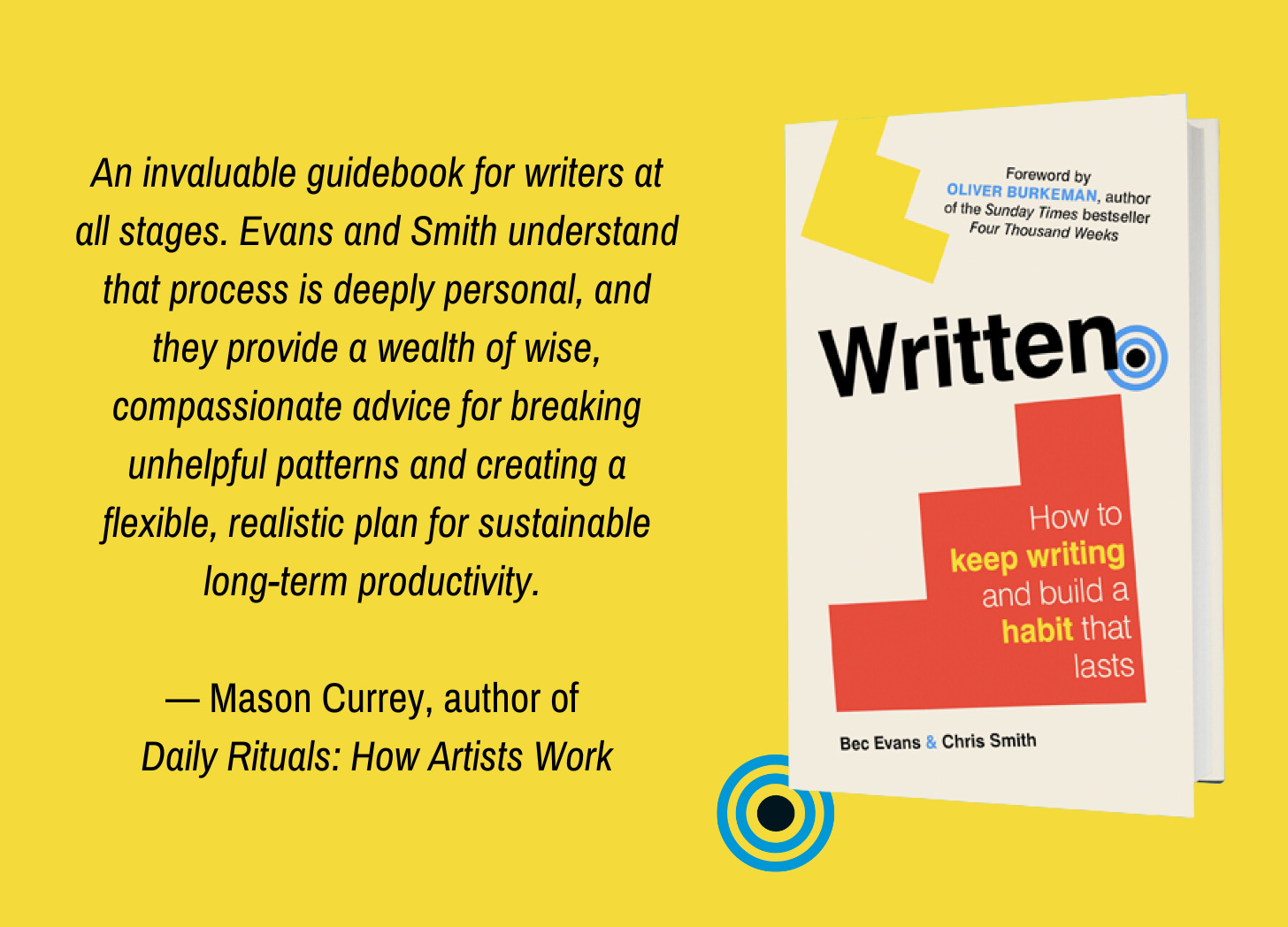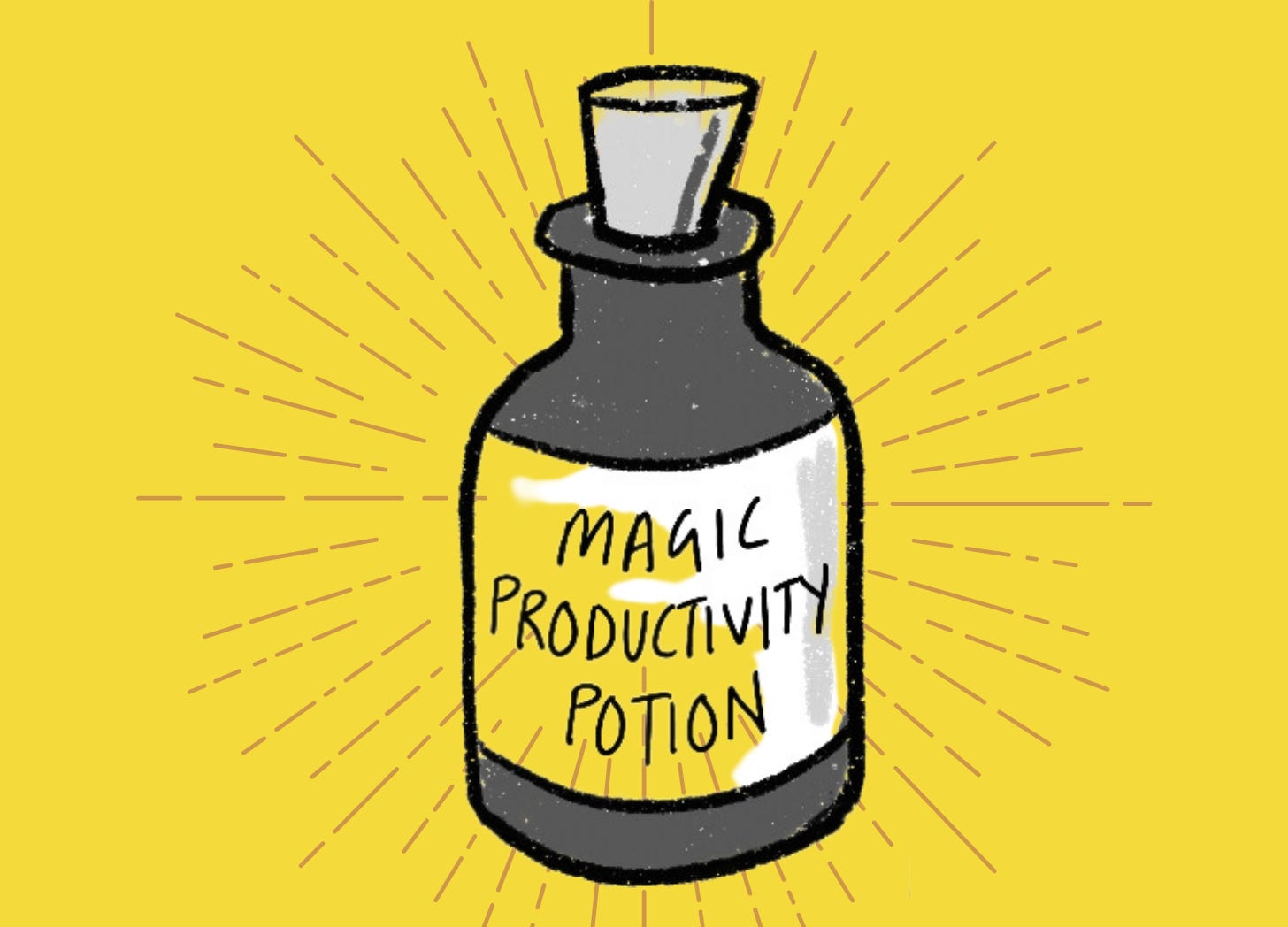As coaches we hear a lot of stories about the writing advice that people have been given. While this advice is often well-meant and shared generously with the intention of helping, it often has the opposite effect.
For example, take the often quoted advice to write daily. It’s true that writing every day can work well. But if you can’t because you have a life, a family, or responsibilities of one kind or another you can end up feeling like a fraud - that you are not a ‘proper writer’ and that writing is, therefore, not for you.
More harm than good
Writers are susceptible to believing simple ‘magic potion’ solutions - they aren’t especially gullible, just human and in need of some support. To stretch a nautical analogy to breaking point, when you’re all at sea, being told that a certain technique will work for you feels like you’re being thrown a lifebuoy. The problem is that rather than keeping us afloat it can pull us under.
The pressure piled on writers (academics and creatives alike) can destroy confidence and cause blocks which can last for years - having an impact on career prospects and well-being. That’s before we get to the loss of valuable research and stories that could have made it into the world if there was some less dogmatic support early on.
(Some) writers lie 😲
Cathy Rentzenbrink is a writer who loves to encourage other writers. She is known for offering generous support to writers tackling difficult subjects or writing in tricky circumstances.
When we spoke to her a couple of weeks ago, she offered a refreshing perspective on dealing with writing advice. Before you cling on to advice for dear life, consider these four things:
That the person offering you the advice might be trying to keep you safe.
Advice often comes from well-meaning parents, teachers and friends. ‘It’s that people are frightened for you. They are just trying to manage your expectations,’ she said.
That they may be lying.
The author sharing insight into their writing process might be protecting themself according to Rentzenbrink because, ‘writers lie. Loads of writers don’t want to admit how half-arsed their process is.’
That the person is speaking about their own personal experience.
She says that when it comes to any kind of writing advice, ‘all a writer can really ever do is say: ‘This is what works for me.’’
That their advice is ‘bananas’ - so you can ignore it.
‘If it doesn’t work for you, just decide: ‘Well that’s interesting, she does it like that. That’s not my way.’’
You can read the transcript of our conversation with Cathy Rentzenbrink and watch the video on YouTube.
Written is available in the UK from all good independent bookshops (which we would encourage you to buy from) and also Amazon. It is also able to pre-order in the US (out April 18th) and in Australia and New Zealand.
5 links from us
➡️ Our book Written was reviewed in Forbes by futurist Tracey Follows. Read: From Maya Angelou To Anthony Trollope: The Secret To Getting Books Written
➡️ L. M. Archer interviews Chris for the Gotham Ghostwriters blog: GG Craft Interviews: Chris Smith
➡️ We love it when we get shout outs by readers in their newsletters and on the socials. The wonderful poet and writing tutor Katrina Naomi reviews Written.
➡️ Our friends at The Research Whisperer put together a great podcast based on our Q&A session with their community. Listen to How to Feel Good About Your Writing… and feel good about your writing!
➡️ London Writer's Salon created an Instagram reel of our conversation about Writers' Block and Procrastination
5 links from others
➡️ It’s all about the direction not the destination. We fully endorse The Idler’s manifesto for slow learning
➡️ Sorry to be a killjoy but research finds that drugs and alcohol do not make you more creative! So, now you don’t even have excuse…
➡️ What helps creativity? These articles on walking from 2014 popped up recently from The New Yorker Why Walking Helps Us Think and Adam Gopnik on What We Do When We Walk
➡️ Sean Usher aka Letters of Note asked ChatGPT to come up with as many unique ways to end a letter and here is the result: 500 ways to end a letter, according to our AI overlords. Until we type again, with gratitude and gusto.
➡️ And this super writing tip from Nikesh Shukla.
Image © Graphic Change from #WrittenTheBook
Ready to make your own rules?
Over the past month we’ve been exploring some of the themes from our book Written, focussing on Chapter 1: Break the Rules. The advice we are given is the advice that worked for someone else. We give you permission to break their rules.
Next week we begin exploring Chapter 2: Make the Rules - that work for you. With an open mindset, some experimentation and support you can overcome writing myths, figure out what works for you, and free yourself of limiting beliefs.
Back in your inbox next Wednesday. If you like Breakthroughs & Blocks please press the ❤️ and pop a comment or a question below.
Keep writing, Bec & Chris









